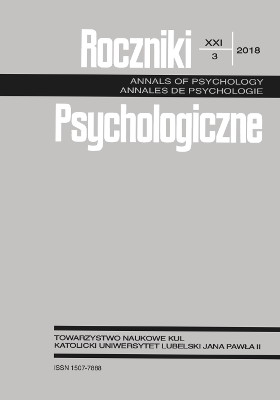Overabundance and privation as predictors of materialism in young adults
Overabundance and privation as predictors of materialism in young adults
Author(s): Magdalena Poraj-WederSubject(s): Social Sciences, Psychology, Personality Psychology, Psychology of Self
Published by: Towarzystwo Naukowe KUL & Katolicki Uniwersytet Lubelski Jana Pawła II
Keywords: materialism; deprivation roots of materialism; excess; overabundance; privation; poverty
Summary/Abstract: The aim of the present study was to determine how the social and material status of the family of origin and the degree of satisfaction of material needs during childhood (excessive vs. insufficient) engender materialism in young adults. The participants in the study were 346 individuals aged 20 to 35. To measure materialism, the following scales were used: the Material Values Scale by Richins; the Priorities in Life Scale; and the Motives for Making Money Scale by Srivastav, Locke, and Bartol. Socioeconomic variables were measured with the author’s own tool. The results indicate that the low socioeconomic status of the family of origin and the experience of privation in early life increase the attractiveness of material goods and money, and thus contribute to the formation of the materialistic orientation. The experience of overabundance during childhood, by contrast, is negatively correlated with materialism. This, however, does not mean that being spoiled has no negative consequences. It appears that people who were showered with material goods in childhood lose the ability to appreciate their abundance. They feel they do not have enough material goods, even if they have more than others.
Journal: Roczniki Psychologiczne
- Issue Year: 21/2018
- Issue No: 3
- Page Range: 207-229
- Page Count: 23
- Language: English

